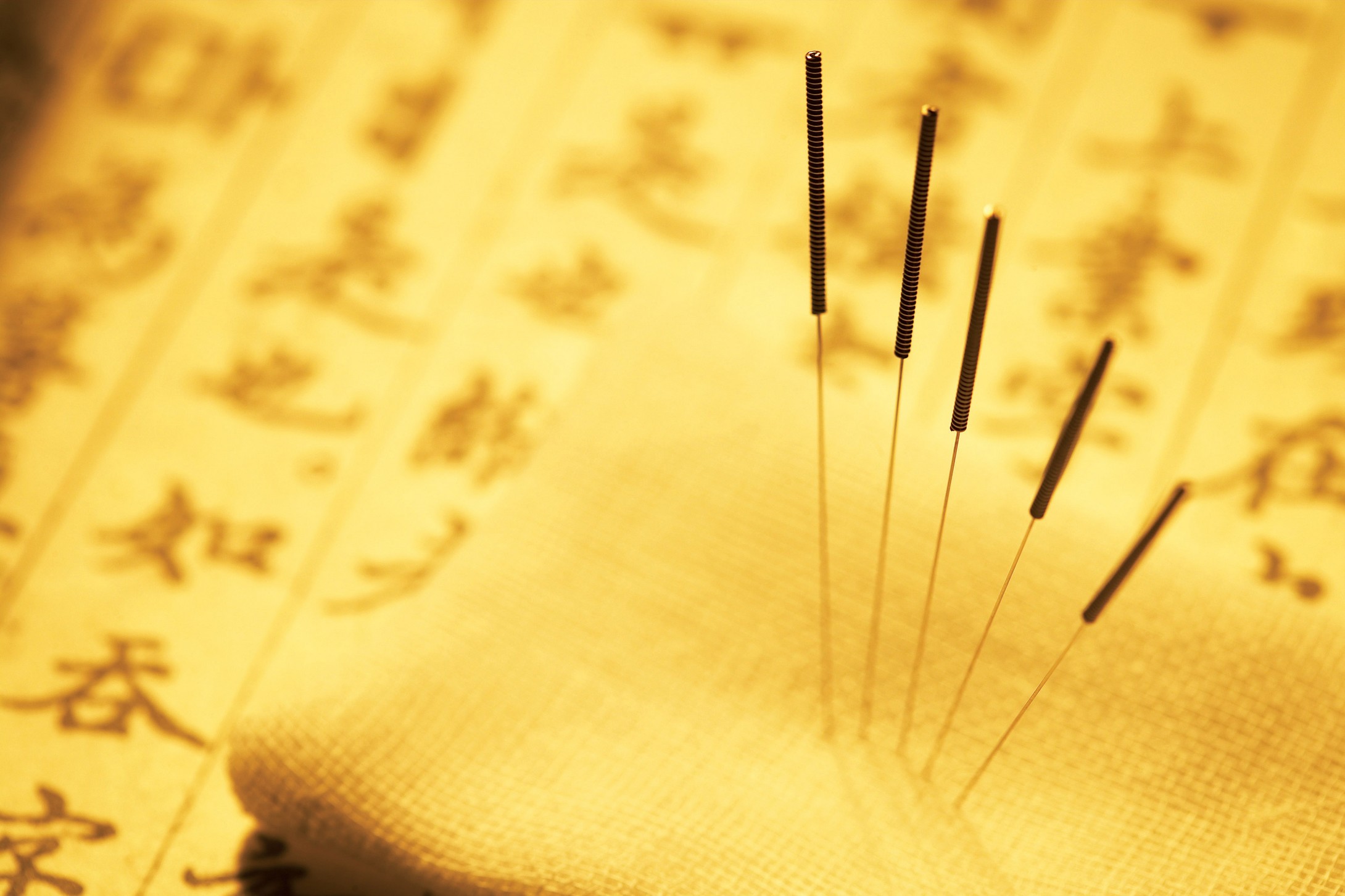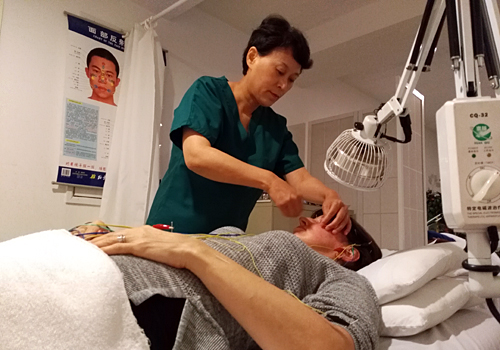





Knowledge of Acupuncture
What is acupuncture ?
Acupuncture is one of the newest primary health care professions in the Unites States, but it has been a part of Oriental medicine for over 5000 years. Acupuncture is part of a system of natural healing. When trauma, stress, poor diet, or other conditions disrupt the proper energy flow (or, Chi) of the body, the result is often pain or illness.
 Acupuncture works to correct the imbalances by stimulation specific points in the body.
Acupuncture works to correct the imbalances by stimulation specific points in the body.
Acupuncture has three main objectives:
1. Relieve pain and other symptoms
2. Strengthen the immune system
3. Balance and harmonize the functions of the organs with each other to make for a unified, healthy person.
What is involved in acupuncture diagnosis ?
Fourteen major channels of energy, called meridians, flow through the body. By examining the meridians, the acupuncturist will determine blockages and imbalances of Chi. The acupuncturist may use any or all of the following methods to diagnose imbalance:
Interview:
The acupuncturist compiles a complete account of the patient's lifestyle, diet, feelings, and medical history.
 Physical examination:
Physical examination:
The acupuncturist examines certain acupoints along the meridians. If tender, they may indicate problems with specific areas and functions of the body.
Observation:
The acupuncturist notes the physical condition of different parts of the body, such as the tongue, skin, hair, voice, palm and eye, to confirm health issues.
Pulse diagnosis:
The acupuncturist evaluates pulses throughout the body to reveal disharmonies of Chi and which organs may be involved.
Is acupuncture safe ?
Yes. The U.S. Food and Drug Administration (FDA) requires acupuncturists to follow very strict sterilization procedures. The FDA requires that presterilized, nontoxic needles are manufactured, package, and shipped in sterilized containers. The acupuncturist will use a new set of these disposable needles taken from a sealed package for each patient and will swab treatment sites with alcohol or another disinfectant.
Is acupuncture painful ?
Acupuncture needles are metallic, solid, and hair-thin. People experience acupuncture differently, but most feel no or only minimal pain as the needles is inserted. Because the needle are enters into a meridian, at times a patient might feel an electrical sensation or a warmness along the meridian. This is good because it means the needles will work more effectively. Some people are energized by treatment, while others feel relaxed. Movement of the patient or a defect in the needle can cause soreness and pain during treatment. It is possible, if a patient is either extremely weak or has had too much to eat immediately before the treatment, that the body can become over stimulated. In such cases, if the patient begins to feel weak or sick, the acupuncturist will likely remove the needles and use a milder form of treatment.
Conditions commonly treated by acupuncture:
|
Accident Trauma Addictions - drugs, alcohol, smoking Allergies/Asthma Arthritis Attention Deficit Disorder Bell's Palsy Blood Pressure - high or low Carpal Tunnel Syndrome Chronic Cough Circulation Problems Colds and Flu Complications of Stroke Constipation/Diarrhea Depression Dizziness (Vertigo) Digestive Problems Emphysema Fatigue Female Disorders Fibromyalgia |
Headache/Migraine
Heart Problems Gall Bladder Disorders Infertility - auto, home, sports, work Insomnia Kidney Problems Nervousness Pain Relief - neck, back, joint Prostrate Problems Rheumatism Sciatica Shingles Sinus Infection Skin Problems Smoking Addiction Stomach Problems Stress/Tension Thyroid Condition Ulcers Weight Loss And more |